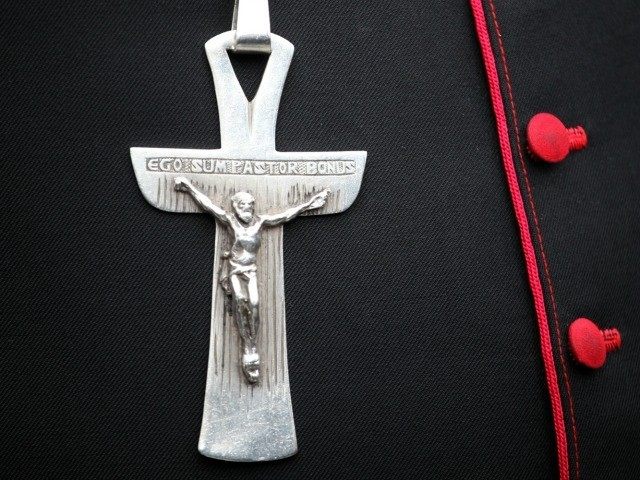Professing basic Christian doctrine could be effectively “criminalised” in some circumstances under the UK government’s proposed Extremism Disruption Orders, a prominent Anglican theologian and former lawyer has warned.
In the run up to the last general election, the Conservatives included in their manifesto a proposal to introduce the Disruption Orders, designed to crack down on hate speech which incites violence but is not in itself illegal. The proposal was unveiled by Home Secretary Theresa May in a speech at party conference, in which she referred to the threat posed by the likes of Islamic State (IS) and Boko Haram.
However, the Rev Dr Mike Ovey, principle of Oak Hall Theological College in London, a training centre for Church of England clergy, has warned that the Disruption Orders could be a “disaster area” for people of all religions and none thanks to the broad, vague scope of the proposed legislation, the Telegraph has reported.
Dr Ovey, who worked as a parliamentary draughtsman in the 1980s when anti-terrorism legislation designed to deal with the IRA threat was being drawn up, warned that the proposed legislation must include a tight definition of what constitutes an offence, or risk criminalising almost anyone.
He said that, if left vague, even the curriculum of colleges such as his might be called into question as professing the most basic tenets of Christianity, such as the belief that Jesus is the Son of God, could be deemed offensive to other religions and therefore “un-British”.
And he added that it would be easy to argue that there was a clear trajectory between, for example, teaching mainstream Christian views on subjects such as abortion, and the violent actions of some pro-life campaigners.
“They are going to say this is far-fetched and will never happen,” Dr Ovey said. “That is essentially a government saying trust us with your civil liberties. I would say frankly human experience tells us the last thing you ever want to do is trust a government with your civil liberties.
“The Government is going around saying it is all a time of national emergency. I think I want to say we have been there before and got the T-shirt. It doesn’t work.”
The Chancellor George Osborne has previously made it clear that the aim of the proposed legislation is to “eliminate extremism in all its forms”. Writing to his constituents, the Chancellor added that the Orders would be used on those who “spread hate but do not break the law,” and that they would cover any activity deemed to “justify hatred” against people on the grounds of religion, sexual orientation, gender or disability.
Dr Ovey said: “We don’t know what British values are other than whatever Theresa May decides on the particular Monday when she wakes up and has to make one of these orders. Having an inclusive definition is hopeless from a legal point of view.
“Is a police officer going to listen to me saying that Jesus is the only way in a Muslim part of the East End? There is always the argument that it will be OK on the night, yes you might be arrested but you will be released – but there is always the thought that you won’t be.
“The thing with a law like this is that there are going to be some people saying I’m not going to run the risk and someone like me who is going to run the risk is going to look more extreme.
“As a lawyer I think it is a disaster area and as a Christian believer and teacher I think it is a disaster area. There has got be a better way to do it.”
Campaigners both secular and non-secular alike are already preparing their campaigns against the Extremism Disruption Order legislation.
Colin Hart, director of the Christian Institute, has said: “You can’t protect democracy by taking powers which undermine the very foundation of democracy. EDOs and banning orders, promulgated in the name of ‘British values’, will fundamentally undermine the key British value of free speech.
“The cure is worse than the disease.”
Last October, Keith Porteous Wood, director of the National Secular Society told the Telegraph: “The government should have every tool possible to tackle extremism and terrorism, but there is a huge arsenal of laws already in place and a much better case needs to be made for introducing draconian measures such as Extremism Disruption Orders, which are almost unchallengeable and deprive individuals of their liberties,” he said.
“Without precise legislative definitions, deciding what are ‘harmful activities of extremist individuals who spread hate’ is subjective and therefore open to abuse now or by any future authoritarian government.”
Last week the Conservative peer Lord Blencathra told the Lords that the orders could open the door to “idiot police forces arresting a couple of ladies from the WI and a traditionalist Church of England vicar who has said something radical — for example, that he actually believes in God.
“But where do the problems really lie? Do we have Buddhist suicide bombers? Are there Free Presbyterians beheading Roman Catholics in Benbecula? Are there jihadi Jehovah’s Witnesses? Of course not, so who then deserves to be caught in this wide net of extremists?”
Follow Donna Rachel Edmunds on Twitter: Follow @Donna_R_E or e-mail to: dedmunds@breitbart.com

COMMENTS
Please let us know if you're having issues with commenting.